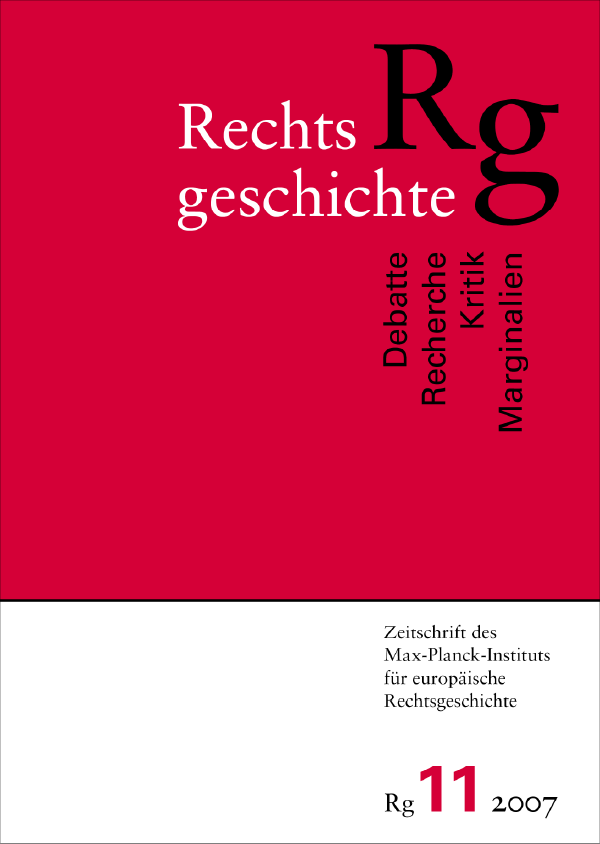Rechtswissenschaft – Menschenwissenschaft
DOI:
https://doi.org/10.12946/rg11/159-171Abstract
It is really bizarre: desperately seeking justice, we ended up with law. There is a radical and brutal separation between an imagined world – justice – and the world of that which happens – judges laying down the law. This separation, alienation, autonomy has not had any consequences on the functionality of the latter. Revolutions are not really concerned about law, and in the end the utopian struggle for justice reaches its dénouement not only in a Code civil, but also in a Code de procedure civile. Law always wins out over justice. At the same time law remains intangible: all justifications will only touch the law like water on an oily surface. There is no adherence. It is slippery in the world of jurists. Watch your step! It is really bizarre to imagine that justice and doctrine and science – and other transcendent ideas – could enlighten a well oiled machine that functions in a radical and exclusive mode: one could be right – or the other. The machine always spits out one decision – or another decision. The machine of law is perhaps the greatest producer of uncertainty. And this is its most obvious secret – and its modernity. It is really bizarre. Because law, in its old way of judging cases between parties, because law, in its endless power of the one or the other interpretation, because law at the end is the result of the imagination, the constructions, the poetries of the legal-workers. In this sense, man, the character of man, returns into the discourse about jurisprudence and into the jurisprudential discourses themselves.
Downloads
Veröffentlicht
Zitationsvorschlag
Ausgabe
Rubrik
Lizenz
Copyright (c) 2007 Autor/in

Dieses Werk steht unter einer Creative Commons Namensnennung - Nicht-kommerziell - Keine Bearbeitung 3.0 International -Lizenz.





